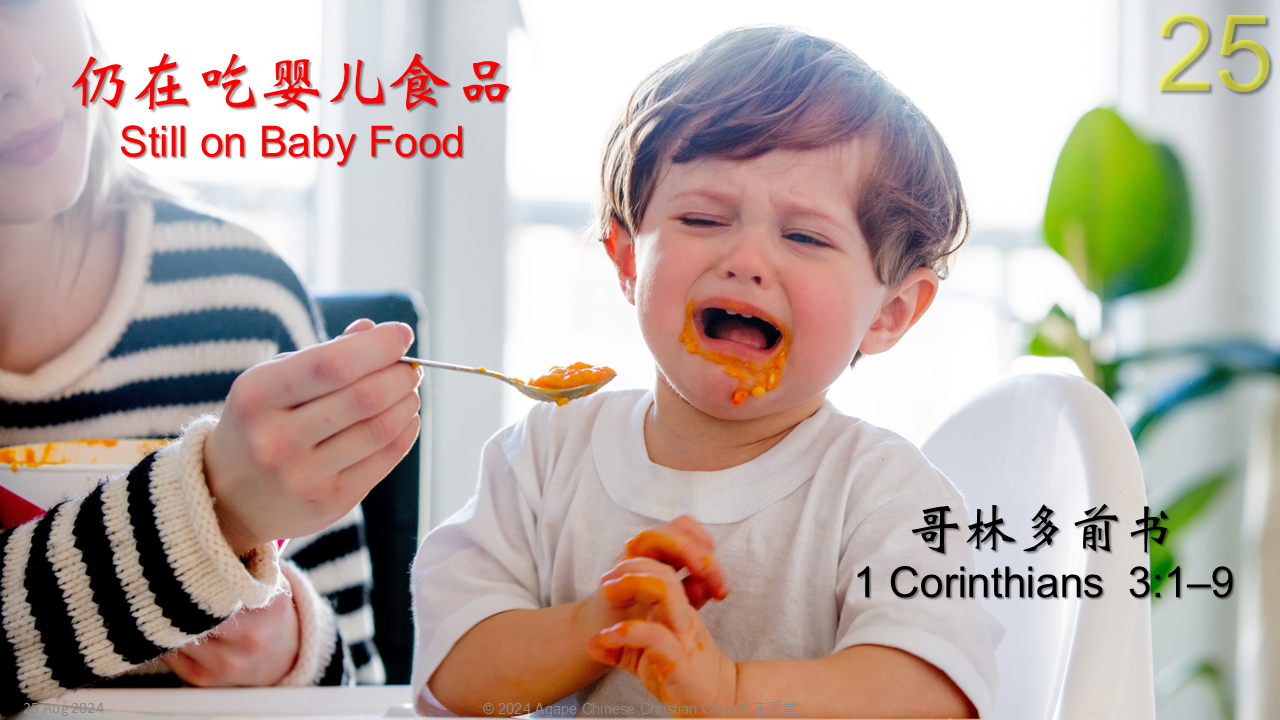仍在吃婴儿食品 Still on Baby Food
哥林多前书 1 Cor 3:1–4
Remember these points
I put these points at the top of my sermon-prep template to remind myself every week:
- Show that main point of passage relates to Jesus and his saving work
- (1 Cor 1:18) A truly gospel-centred message will not be acceptable in a synagogue or mosque
- Did I proclaim the gospel as the headline news of the sermon, rather than as a “by the way…”?
- Unbelievers are called to repent, believe, and be saved
- Believers are encouraged to abandon their old self, renew their minds, put on the new self in Christ
- Preach simple sermons, so that God’s people can see Christ more clearly and love him more dearly
News
Review
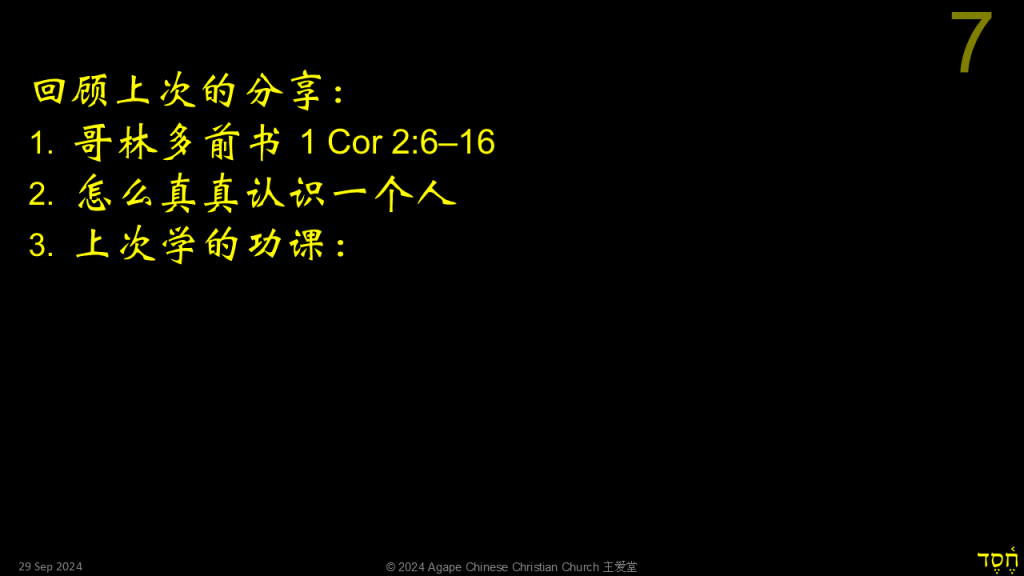
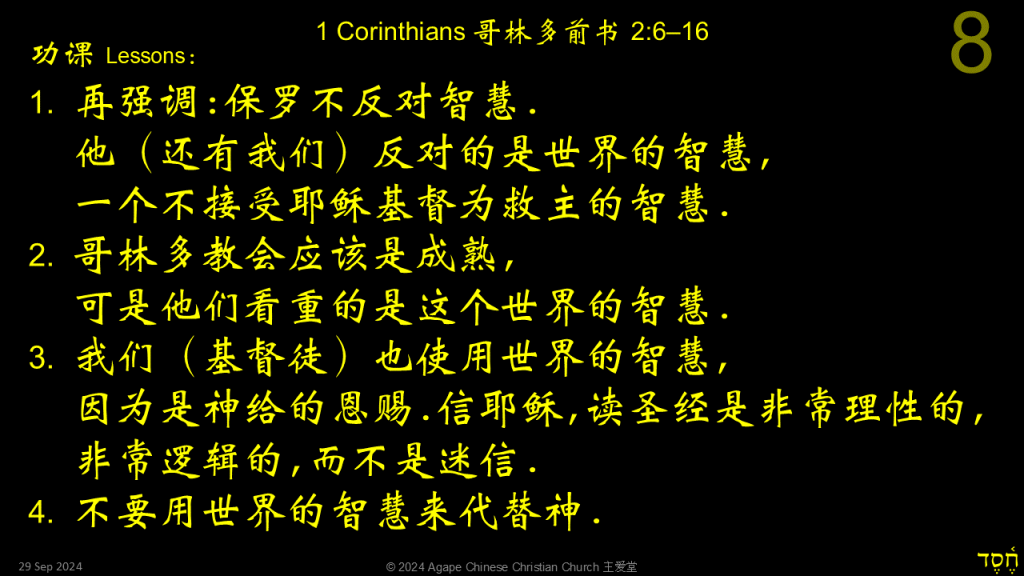
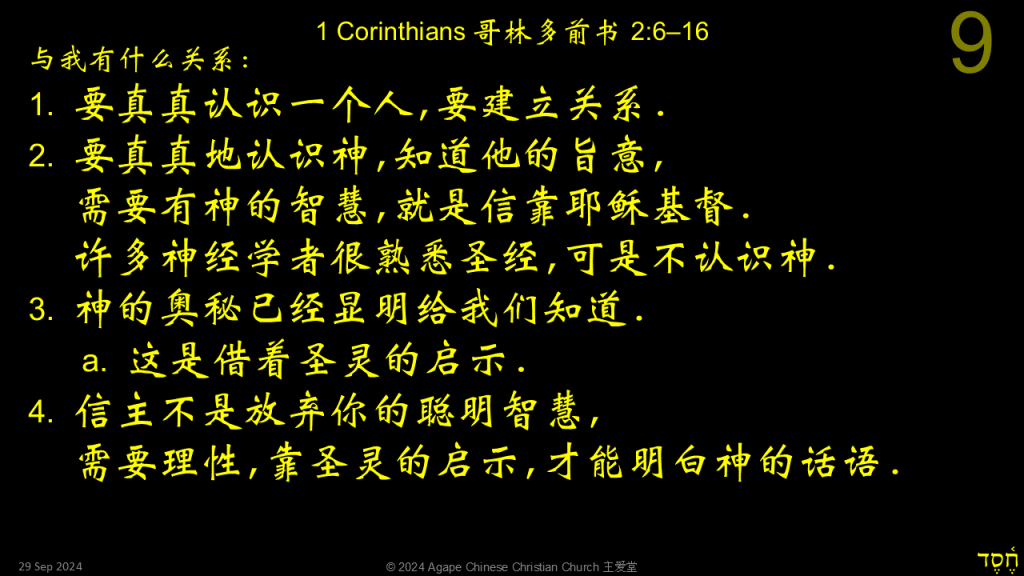
Passage
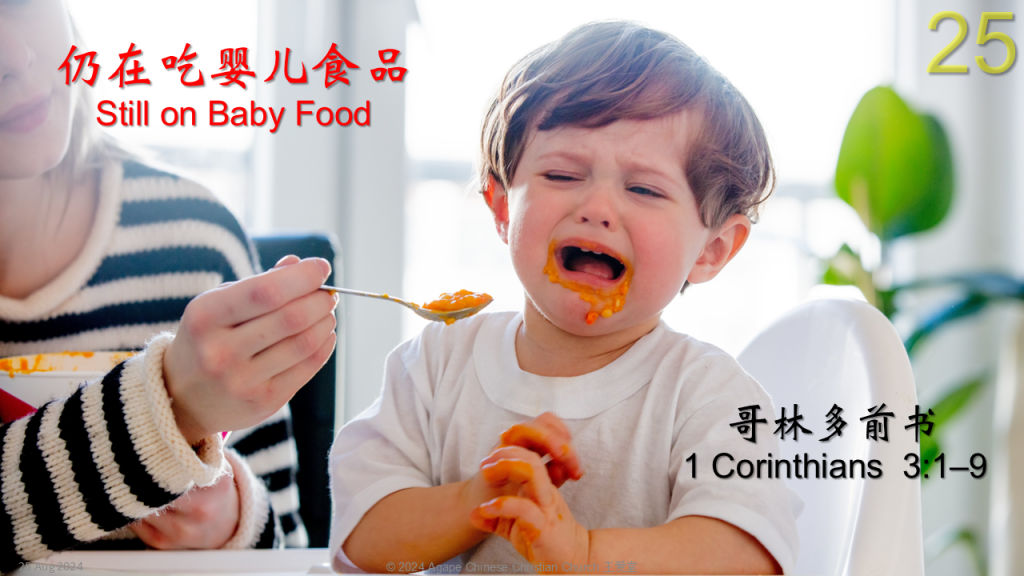
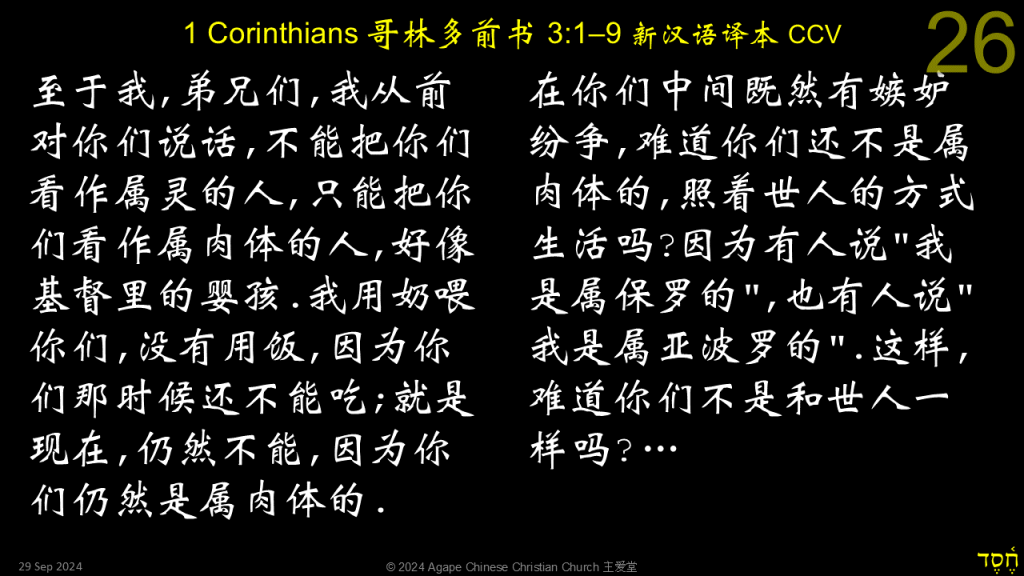
The pop-up in the Chinese slide applies mainly to Chinese speakers:
- The version we’re reading here is NOT the CUV, it’s the CCV (something like New Chinese Translation).
- Best way to read the Bible is to read it in the original languages.
- Otherwise, read different translations. Chinese is at a great disadvantage compared to English (very few versions, maybe under 10, compared to at least 50–60 versions in English).
- Best not to use translations from individuals, like 吕振中译本. A translation group is often better.
We can read such translations, but best to use others for Bible study.
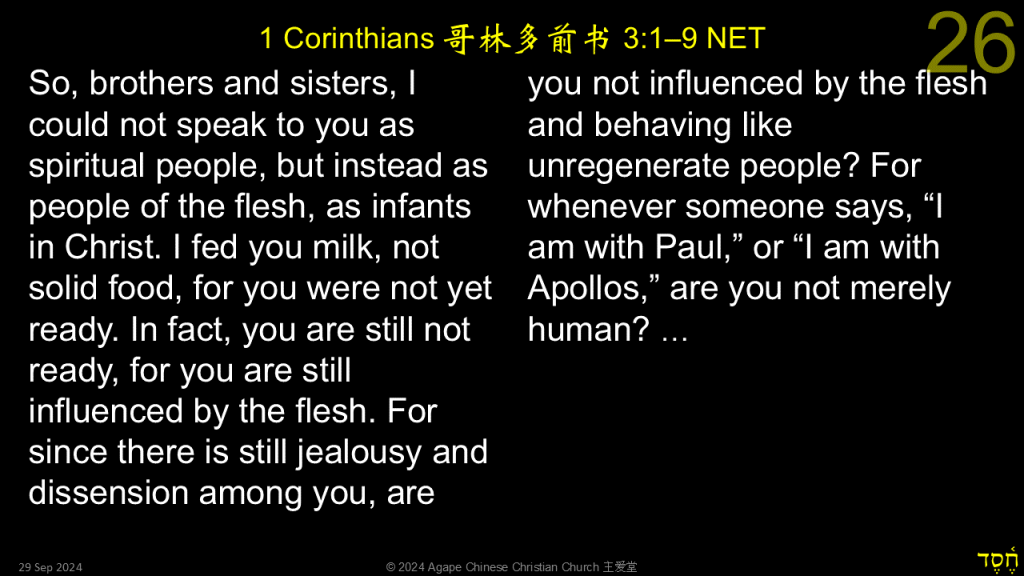
Question
How do we understand spiritual and fleshly?

When we say someone is spiritual (“spiritual people”) or someone is fleshly (“people of the flesh”),
what does it mean?
What are some things you commonly hear (especially in church)?
How do you think unbelievers define these terms?
If a non-Christian were to ask you what these mean, how would you answer?
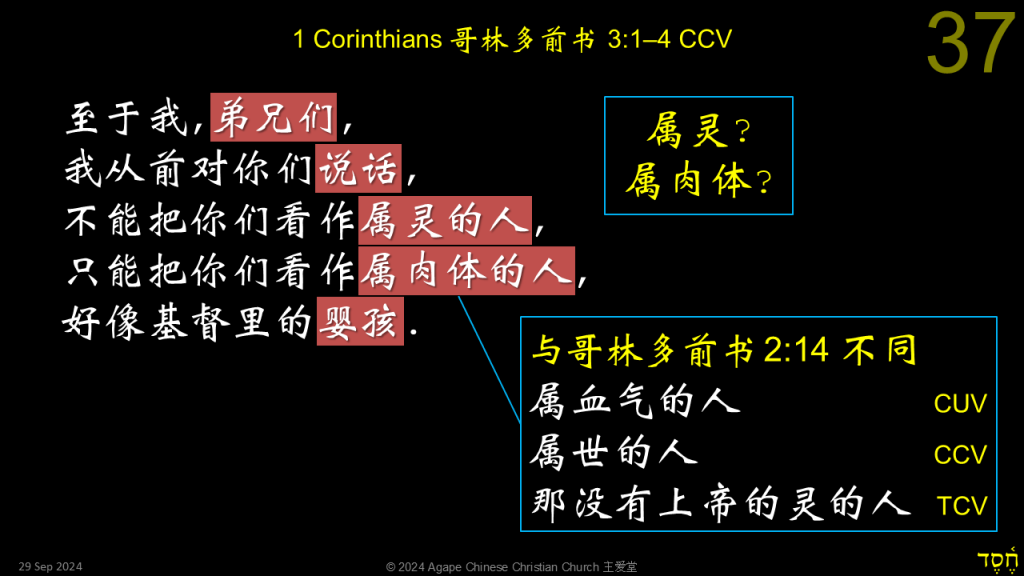
Paul still calls them “brother” (or brothers and sisters).
The words he spoke to them before, when he first told them the gospel. It’s still the same now (after he left Corinth).
He can’t consider them to be spiritual people. Instead, they’re “fleshly” people.
Note fleshly doesn’t mean unbelievers (as in 1 Cor 2:14). The Corinthian church are believers, but they’re like little kids (pejoratively speaking), still not grown up after all these years.
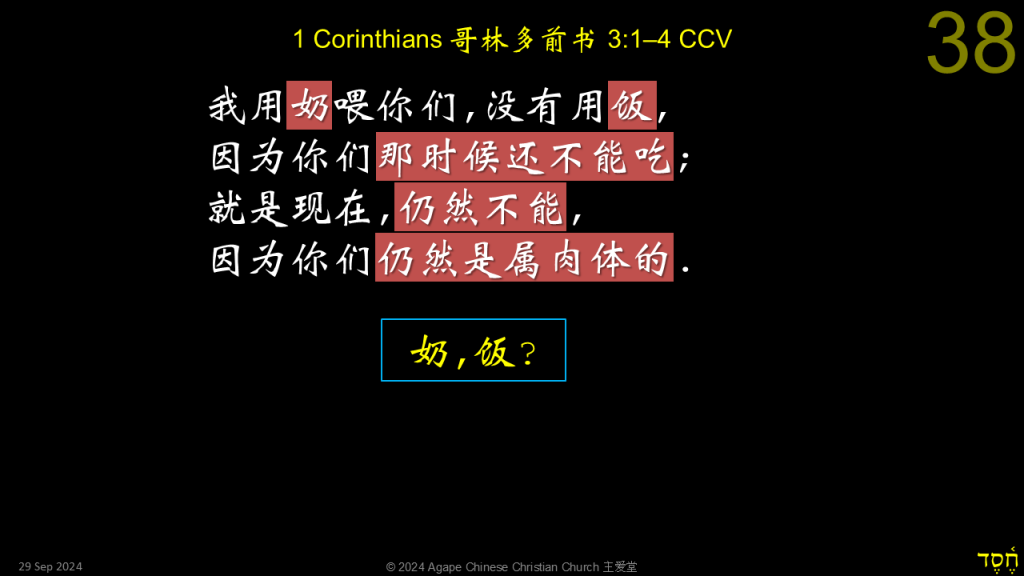
He must feed them milk instead of solid food. Why?
Because they can’t digest solid food. They couldn’t before (which is normal),
but they still can’t digest now.
How do we understand milk and solid food? They’re metaphors for sure, but what does Paul mean?
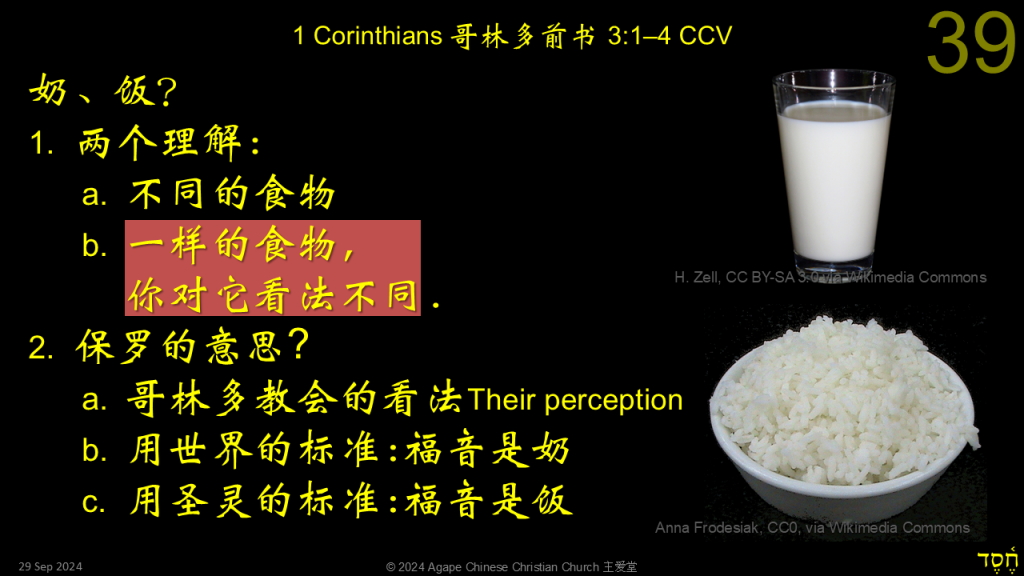
Milk and solid food:
- There are two ways to understand this:
- Different types of food (which is the usual way to understand the terms).
- Same food, but your perception of them are different.
- Paul’s meaning?
- It’s the perception of the Corinthian church that’s at fault.
- Using the world’s standards: the gospel is like milk (fit only for babies)
- Using the spiritual standard of the Bible: the gospel is solid food
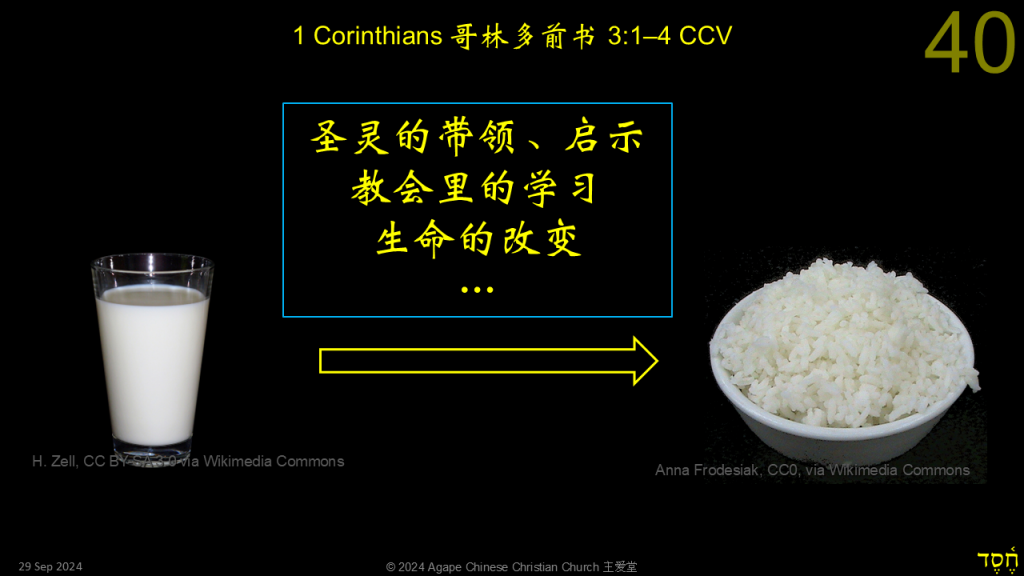
When we first believe, the gospel is like milk, we’re like babies in the faith.
As we mature through the guidance of the Holy Spirit, teachings from the church (sermons, Bible studies, etc.),
we have our lives changed.
We mature into eating solid food.
The food is the same, just our perception of it has changed.
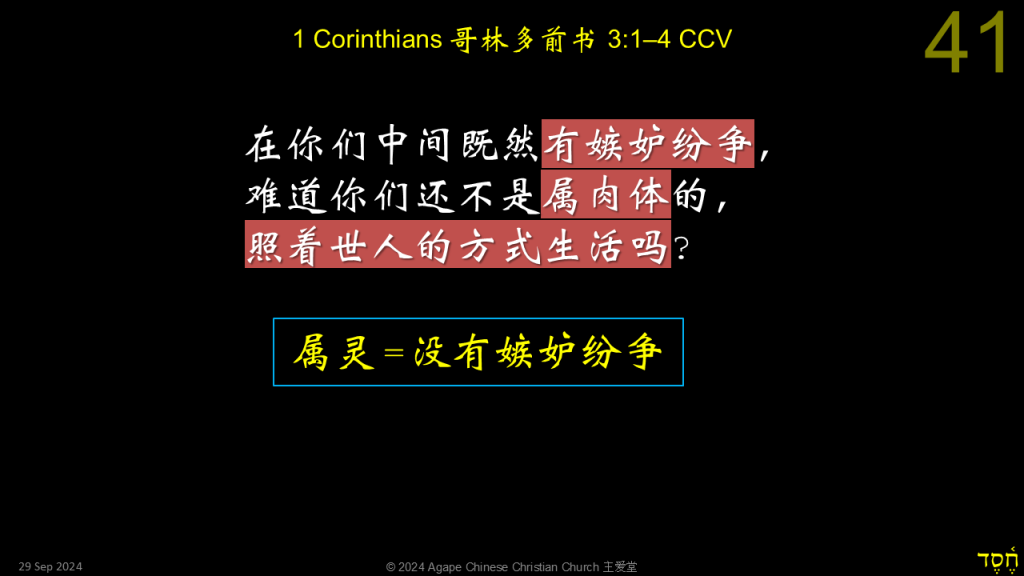
There is jealousy and strife among them. This is why they’re still babies.
They are still living according to the world’s standards, NOT according to biblical standards.
This also implies a definition of what a spiritual means: no jealousy nor strife.
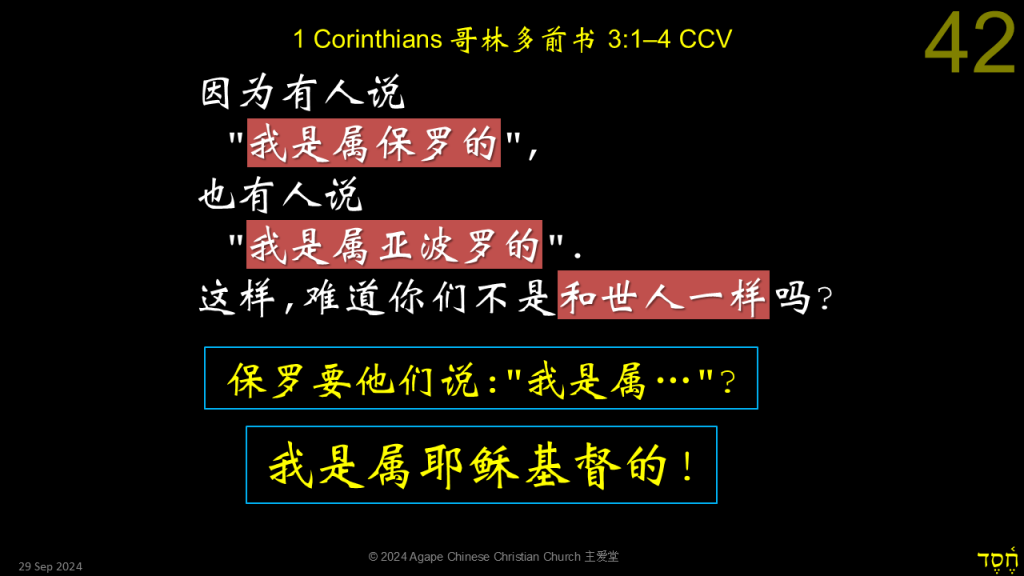
How do we know they have jealousy and strife, that they’re following worldly standards?
They take sides with their teachers, just like in the Greek/Roman society.
They look up to their teachers, instead of to the Lord.
What Paul wants them to learn is to say, “I follow Jesus Christ!”
Lessons
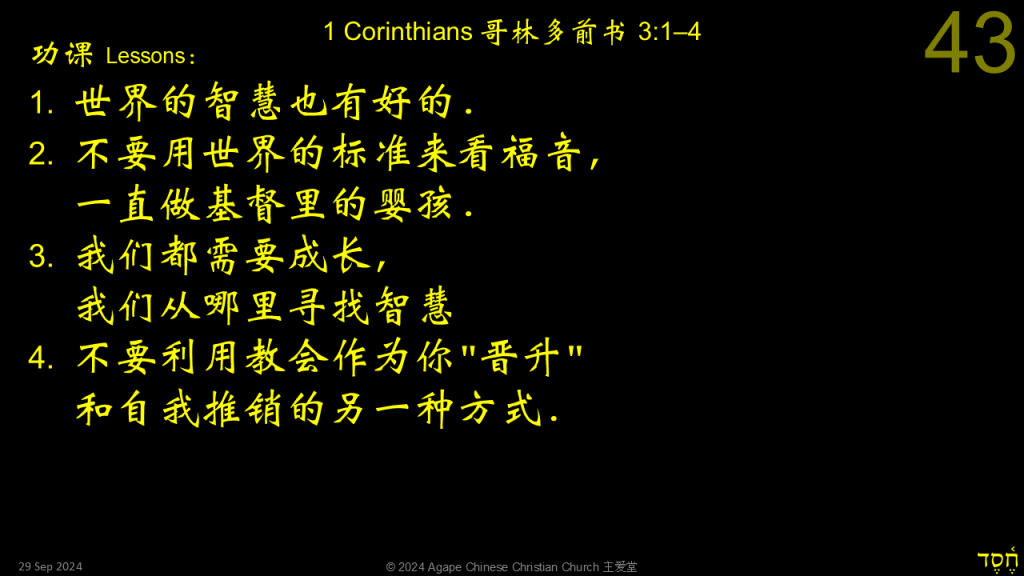
- Not that bringing in habits or techniques from the world is always bad. Give some examples.
- Don’t remain infants in the field of Christian knowledge. Always knowing a bit here, a bit there, knowing only the most general things, but never really understanding the whole picture.
- We all want to grow, but where are we seeking this growth?
The secular world also grows, and many Christians (like the Corinthians)
look to this secular fleshly way of growth. (PtW) - “Spiritual people are to walk in the Spirit. If they do otherwise,
they are “worldly” and are called upon to desist.
For the apostle, remaining worldly is not an option.” (NICNT) - Don’t use the church as another way for you to “advance,” to promote yourself.

